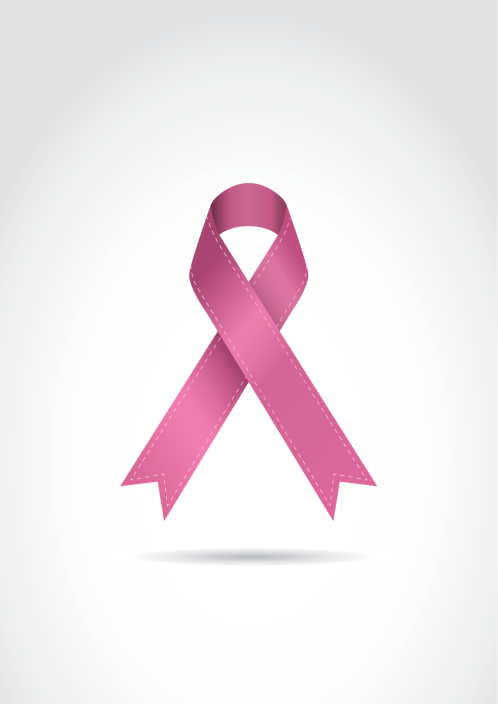 February is National Cancer Prevention Month and it’s all about spreading awareness on the things you can do every day to lower your cancer risk and ultimately prevent cancer. It seems like there are so many types of cancer and you can get it from almost anywhere, so it can be hard to determine what, if any, moves can be made to duck this ever-present disease.
February is National Cancer Prevention Month and it’s all about spreading awareness on the things you can do every day to lower your cancer risk and ultimately prevent cancer. It seems like there are so many types of cancer and you can get it from almost anywhere, so it can be hard to determine what, if any, moves can be made to duck this ever-present disease.
One of the most effective and safe ways to prevent cancer is through nutrition. What you include—and don’t include—in your diet can play a major role in the prevention or acquisition of cancer. When it comes to cancer and nutrition, the old adage of getting out what you put in is definitely applicable.
Now, is there one specific thing you can eat to cure cancer or completely eliminate the chance of getting it? Unfortunately, there is not.
In fact, foods that contribute to cancer are often more easy to identify than foods that prevent cancer. But in any event, we do know that foods offering the most protection from cancer are typically plant-based and rich in antioxidants, phytochemicals, and fiber—in other words, fruits and vegetables.
Studies have shown cancer risk is lowered in people who eat a diet high in phytochemicals and antioxidants like vitamin C, lycopene, and beta carotene. They protect your cells from mutation and harmful compounds.
In fact, an anti-cancer diet doesn’t look that different from what you may be picturing as a healthy diet: lots of fruits and vegetables, whole grains, some lean protein and no (or very little) processed meats, sugary foods, drinks, alcohol or junk.
There are some foods that pack some extra power when it comes to their ability to prevent cancer. These items have been researched substantially and found to prevent, fight, and even stop cancer in its tracks. Here are some cancer defenders you should include in your diet.
Garlic
The same sulfur compounds that make your breath stink can keep more than just potential kissers away; they can kill cancer cells. It’s possible garlic possesses compounds that keep cancers from growing in your body, while accelerating DNA repair. They have been shown to attack bacteria linked to stomach cancer and to reduce the risk of colon cancer.
Preparing garlic the right way is necessary to reap their full benefits, so be sure to press the cloves and let them sit for 15-20 minutes before cooking. This way, the sulfur compounds are released and provide the most benefit. Also, most of the positive results are unique to the cloves themselves, with supplements unable to provide the same benefits.
Cruciferous Veggies
Broccoli and other cruciferous vegetables contain high levels of phytochemicals that are released during consumption. Broccoli, in particular, contains a compound called sulforaphane. Sulforaphane may be able to reduce or limit the impact of external cancer-causing agents like smoke and other pollutants by detoxifying them when you breathe them in.
Studies have shown cruciferous veggies, which also include cabbage and cauliflower, are also helpful to prevent cancer of the mouth, throat, and esophagus.
Tomatoes
Lycopene is an antioxidant that gives tomatoes their bright red hue and also arms them with a powerful weapon against cancer. Diets high in lycopene show a reduced risk for prostate cancer, while potentially displaying an ability to stop cancer cells from growing by boosting the immune system.
Tomato is the best source of lycopene, and in virtually any form: fresh, raw, cooked, processed, or in juice. In fact, processed tomato paste and pizza sauce are actually the best forms because their cell walls have been broken down, making the compounds more powerful.
Now, these three foods aren’t the only ones that can help you prevent cancer in the kitchen. There are other antioxidant-rich foods like berries that can offer valuable cancer-fighting nutrition. Just remember that if it’s fresh produce or a whole grain, it will offer some sort of benefit to your health and probably lead to a reduced cancer risk. Remember, the better quality you put in, the better you’ll get out.
Happy National Cancer Prevention Month!
Sources:
“Antioxidants and Cancer Prevention,” National Cancer Institute web site; http://www.cancer.gov/cancertopics/factsheet/prevention/antioxidants, last accessed February 20, 2014.
“Garlic and Cancer Prevention,” National Cancer Institute web site, http://www.cancer.gov/cancertopics/factsheet/prevention/garlic-and-cancer-prevention, last accessed February 20, 2014.
“Phytochemicals: The cancer fighters in the foods we eat,” American Institute for Cancer Research web site, http://www.aicr.org/reduce-your-cancer-risk/diet/elements_phytochemicals.html, last accessed February 20, 2014.
Gann, R., “The Effect of a Lycopene-rich Tomato Extract on Gene Expression in Benign Prostate Tissue: Results from a Randomized Trial in Men with HGPIN (2009),” American Institute for Cancer Research web site, http://www.aicr.org/cancer-research/grants/grant-09A055.html, last accessed February 20, 2014.
